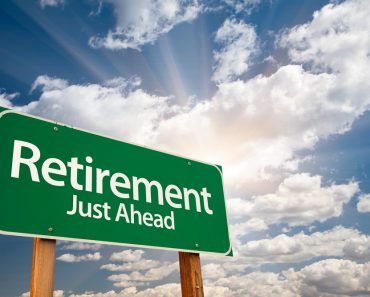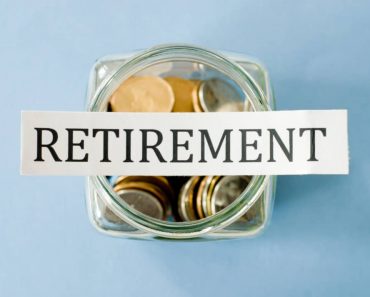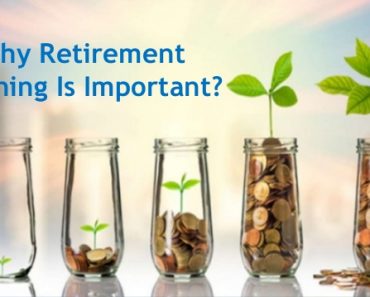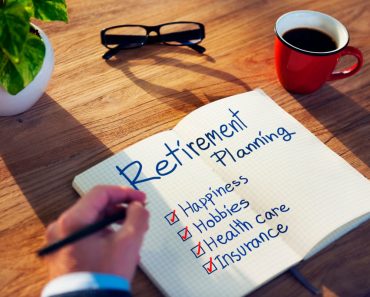
While it is true that there is currently no compulsory retirement age in New Zealand, nonetheless, many people plan to retire at age 65. This is the period when most retirement schemes, including government-funded New Zealand Superannuation (NZ Super), start paying your savings out. Regardless of when you choose to retire, it is never too early to start planning and saving for your retirement.
A retirement savings account guarantees you’ve set away enough money to sustain or even boost your lifestyle once you retire. If you intend to change your lifestyle or travel more, you’ll need to spend a large portion of your income on saving. Essentially, how much you expect to spend when you retire is a key factor affecting your retirement savings.
This guide is intended to help you prepare for financial stability during your retirement, including how much you should save to achieve financial freedom, taking into consideration your individual goals and current situations.
Why Should I Save for my Retirement?
Recently, the Financial Markets Authority (FMA) announced that just 11% of people are sure that they will be financially secure in retirement.
This means almost 90% of Kiwis are not sure that their retirement savings will allow them to enjoy the lifestyle they want when they stop working. Chances are, you’re probably in that category, not only because you’re reading a retirement planning article but because nearly 9 out of 10 Kiwis are in the same category.
It is therefore critical that you begin preparing your retirement long before you finally retire. And planning for retirement means saving for retirement.
How Much Should you Save for Retirement?
Retirement requirements are different for one person to the next. Therefore, to get an idea of how much you will need to live comfortably at retirement, start by thinking about what kind of lifestyle you want and where you’re going to live.
What will your retirement living expenses be? Many costs may go up (such as healthcare) while others may go down (such as schooling, clothes, work-related travel and housing). If you have kids, they are likely to be financially stable.
You also need to think about what your retirement goals might be. If you are renting your home, you’re going to need more savings to cover the expense but, on the other hand, you’re not going to have money locked up in a mortgage.
Owning the home in which you live, debt-free, however, will reduce the possibility of rent rises or being forced to find a new place to stay. You will have more leverage over your finances but you will also need to look after repairs, insurance and so on.
Another important factor in making decisions on this is the average life expectancy. On average, women appear to have a longer lifespan than men. This translates directly into a need for greater retirement savings for women.
A 65-year-old man, for example, has a 33% chance of living up to the age of 90, while a 65-year-old woman has a 44% chance. The longer you stay in retirement, the more you need to save. Couples can also merge their retirement plans to get a deeper insight into what to do. It is also a good idea to assume you’ll live longer and save more to avoid running out of financial resources.
If you qualify for superannuation, you stand to get about $20,000 and change if you are single and about $30,780 if you have a spouse or partner. According to Massey University’s Retirement Expenditure Guidelines, you’ll need this much to live a basic lifestyle in an NZ city without overseas holidays and very few extra delights.
If you want a little more retirement convenience and luxury, you’ll have to save more before retiring. Extra retirement savings would allow you to go shopping, go on holidays once in a while and enjoy other life conveniences.
We’re fortunate in New Zealand in that our superannuation isn’t means-tested and irrespective of how much you save for retirement, you still have the right to the super.
Retirement Savings – Things to Consider
Leaving Properties for Children
Many people rightly or wrongly wish to leave properties to their children upon their death. There’s nothing wrong with this but you should know that you have to save another $1 over your lifetime for every dollar you want to leave your kids.
If you want to leave your children with an inheritance, your choice is whether to save more for retirement or spend less when you are retired. Whatever decision you make, it makes sense to prepare for it and accept that leaving money to children would cost you either today, by savings, or tomorrow by reducing spending.
Employer Superannuation
Although the decision to save lies with you, you (or your partner) will be able to enter a superannuation scheme subsidised by your employer. Each employer’s scheme is different but, in general, one of the “best” ways of saving is to enter an employer’s scheme. In these superannuation schemes, the premiums are normally lower than other pension schemes, and in some cases, the employer subsidises the members’ contributions. If you have access to an employer-sponsored scheme, particularly if it integrates KiwiSaver, you should probably enter it.
Existing Mortgages and Debts
Saving for retirement doesn’t always mean saving in a managed fund or superannuation scheme. It’s equally important to invest in a company, to invest in further education and to pay off debt. In fact, paying off debt is usually one of the best investments you can make as long as you don’t go out and take on more debt.
Paying off your debt or reducing it also lessens your risk if the unexpected happens, such as losing your job, being disabled or needing to retire sooner than you expected. Therefore, your first financial goal should be to pay off your entire debt by the time you retire.
To be free from mortgages by retirement is a great goal to aim for. The reason why many people are able to cope financially now in retirement is that they no longer have the pressure of mortgage repayments. Talk to a good mortgage broker now and plan for the future.
How to Save for Retirement
Unless you are sufficiently well-to-do, setting aside money today to see that you have enough to start a retirement fund for years down the road isn’t an option — it’s compulsory. Sadly, inactivity can be a powerful force and most people may find it difficult to go from not saving to saving. That is why savings and financial advice is recommended for people who have already begun to plan and save for the future.
That said, there are ways you can boost your savings even with limited resources so that you don’t find yourself hard up for cash sometime in the future. Setting up automatic donations is one trick which can make saving easier. If the money doesn’t get into your account, you will not be interested in spending it. If your employer provides direct deposit to several accounts, or you set up your own account to transfer funds directly into dedicated savings, automatic deposits can be a simple and painless way to incorporate savings into your budget.
Another way to channel more money into your retirement funds is to reduce your expenditures. Then transfer the extra money into your savings account until your savings targets are achieved. For example, your biggest expenses are the best place to find savings: housing, cars, dining out, travelling or whatever you’re spending big money on.
If you don’t have anywhere to cut down costs from, you might want to consider looking for a side hustle instead. If you settle on a passive income option, part-time job or freelance job, a few extra hours each week will result in a reasonable direct deposit into your savings.
KiwiSaver
While NZ Super will provide enough for a basic standard of retirement living, many Kiwis will also be able to save on their own. To encourage this, the government is offering ‘KiwiSaver’ to workers in New Zealand.
KiwiSaver is a voluntary savings scheme, focused on workers. If you choose to join, then every payday, a small amount of your wage is deducted and set aside in a KiwiSaver investment scheme. Your employer will contribute at least 3% of your gross salary.
KiwiSaver is intended for people or residents who live in New Zealand, or who usually work there. KiwiSaver is also available for the self-employed but there are no employer contributions, of course.
The money that builds up will be invested by approved ‘KiwiSaver providers’ for you until you are eligible for NZ Super, probably when you are 65 years old. In certain circumstances, you can access the money earlier, for example, if you get seriously ill or are having financial hardship, or if you want to buy your first home.
Sources of Retirement Income:
Many retired New Zealanders earn their income from two main sources – personal savings and NZ Super. It is estimated, however, that about 40% of New Zealanders over the age of 65 depend on NZ Super only.
Definitely, between the income NZ Super offers and the income you want in retirement, there would be a difference. Therefore, when considering retirement needs, you need to provide other sources like:
- Personal savings
- Income and benefits from retirement savings plans such as KiwiSaver, other employee savings and pensions, assets and cash deposits
- Employment
You may prefer and be able to continue working after retiring, either full-time or part-time (as long as you have the skills and abilities). In fact, about one third of Kiwis carry on some sort of paid work even after they hit the 65-year mark. There are also other sources of income that you can explore, including investment income from selling or renting out a property, selling a business or inheritance.
Getting Started with Retirement Saving
Pay off your debts:
Debt makes it difficult to save and comfortably retire, whether it’s credit cards, a mortgage or a student loan. That is why one of the best things you can do right now for your retirement is to pay off your debt as quickly as possible.
Step up your KiwiSaver:
You can’t touch your KiwiSaver if you’ve already bought your first home, which makes it a great way to ensure your savings are kept for retirement. Also, if you meet certain conditions, your employer and the government will contribute to your fund. It however, makes sense to seek advice from a licensed financial advisor to make sure you’re in the right fund and start enhancing your KiwiSaver today.
Invest smartly:
It’s best not to have your investment money sitting under your pillow or in a bank account. Rather, it is usually better to make your money work for you by smartly investing it. Risks are involved and the right investment would depend on the circumstances, so be sure to seek proper financial advice before getting into anything.
Seek expert advice:
Retirement is so far away in the distance that you may feel like you don’t have to do anything now but the sooner you start, the easier it will be and the more comfortably you will be able to retire.
Often, the best first approach is to seek expert advice, consult with a financial advisor who can look at your current financial situation and help you explore options that will provide a good retirement for you. A lot of your budgeting, savings, and investments will be successful if you do it with the help of a professional, so consider engaging the services of such a person.
Final Words
Nothing in life is certain, least of all investment and savings. You don’t know what the returns on your investment will be. You don’t even know how long you’re going to live after retiring. So, there are no guarantees that things will turn out as you expect, even if you follow the suggestions covered in this article. What this means is that every few years, or if anything changes in your life, you should review your goals and check your progress.
Uncertainty is an adversary of well-made plans but certainly no reason for failing to prepare. Therefore, in order to reduce the risk of not having adequate savings you should periodically review your savings level to track your progress towards your goals – year in, year out.






